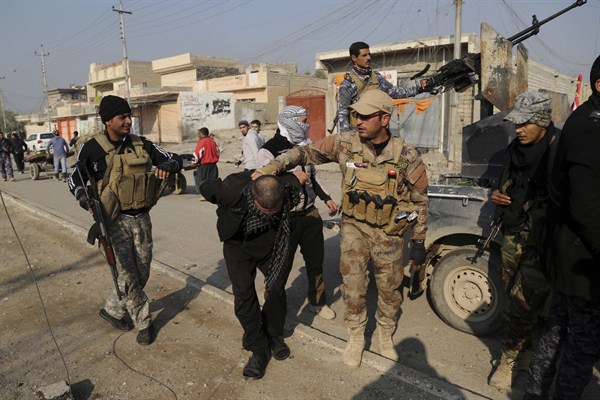The battlefield defeat of the self-styled Islamic State in eastern Syria and western Iraq is far from certain but increasingly likely. Iraqi government forces, in conjunction with Shiite and Kurdish militias, are slowly liberating Mosul, the largest city the Islamic State has conquered. While the Syrian government is less concerned with the group than with other rebel forces it faces, a Kurdish-Arab militia alliance called the Syrian Democratic Forces is pushing toward Raqqa, the Islamic State’s most important stronghold after Mosul.
In parallel, a global coalition led by the United States is undercutting the group’s economic base. The extremists still control significant funds, but their profits and revenues have dropped dramatically. This has not stopped the Islamic State from coordinating terrorist attacks but is eroding its conventional military power.
Driving the Islamic State out of Syria and Iraq would be seen as good news in the United States and Europe but would not represent a decisive victory. If the group loses what it calls its “caliphate” in Syria and Iraq, it will probably devote even more resources to terrorism abroad. In an even broader sense, the Islamic State and the fight against it has become so deeply ingrained in the politics of the Islamic world and the global security system that its battlefield defeat will see both winners and losers. American policymakers must be sensitive to this as they craft a way forward.

